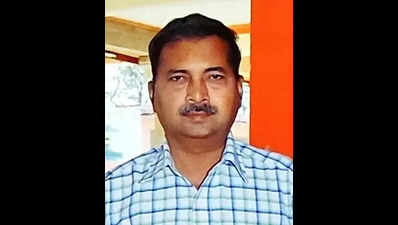- News
- City News
- hubballi News
- Change the TB water sharing agreement ahead of its expiry: Environmentalist
Trending
Change the TB water sharing agreement ahead of its expiry: Environmentalist
Sandur (Ballari): Sadananda Heggadal Math, a prominent environmentalist from Sandur, wrote to the chairman of the Central Water Commission (CWC) and the state chief secretary, advocating the renegotiation of the Tungabhadra Dam water sharing agreement, to align with the National Water Policy (2012). He noted that the current agreement is due to expire in 2026.
The letter outlines several key demands, including the provision of 100 litres per capita per day (LPCD) for all residents, regardless of their location; the establishment of a uniform distribution system that guarantees an equal-duration water supply; the allocation of water based on agricultural and industrial requirements; the integration of climate change adaptation measures; and the promotion of efficient water usage practices.
To support these demands, Heggadal Math proposed a distribution framework targeting four essential sectors. He recommends allocating 15% of the total water from the dam for drinking purposes, prioritising both urban and rural communities; 50% to agriculture based on crop needs; 10% to industrial use with a focus on sustainability; and 25% to hydroelectric power generation.
Additionally, he also outlined a four-point strategy for implementing these proposals. This includes the installation of meters to track water usage, the establishment of an efficient leakage detection system, public education on water conservation, and the formation of monitoring committees.
He suggests a timeline for these measures: renegotiation and agreement drafting in 2024-2025, followed by the implementation of the new agreement in 2026.
To help develop the new agreement, Heggadal Math cited several supporting documents that could help create a robust draft. These include the National Water Policy of 2012, the 1976 Krishna Water Disputes Tribunal (KWDT) Award, the 1953 Tungabhadra Board Constitution Order, relevant hydrological data, and population projections.
He emphasised the need for CWC to initiate renegotiations immediately to facilitate the equitable distribution of water.
End of Article
FOLLOW US ON SOCIAL MEDIA











